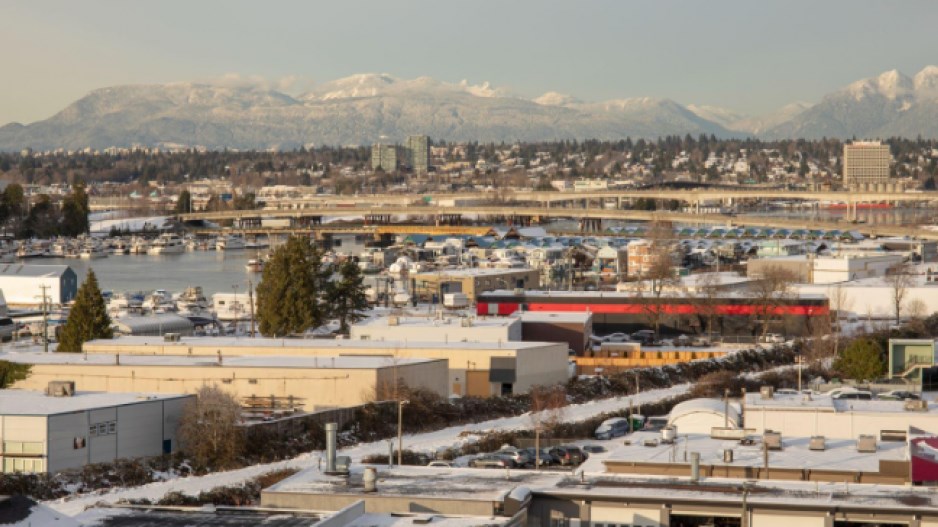Commercial real estate in Metro Vancouver experienced a period of adjustment similar to that seen in the residential market this past year, according to a CBRE Vancouver Market Outlook, and that is resulting in a mixed outlook for the near term going into 2023.
While there is some uncertainty going into the next year, the underlying fundamentals of the Vancouver market that have created resilience in the past still exist, said the outlook.
Strong performance is expected in the industrial sector of commercial real estate, according to Jason Kiselbach, senior vice-president and managing director with CBRE. He cited shifts in manufacturing, with the sector starting to see more activity in North America.
“There is a lot of inventory still being ordered and going through warehouses as supply chains correct. With port activity continuing, I think industrial is still going to be one of the stronger asset classes,” he said.
Though available land has been a challenge for Vancouver, he said people have been finding ways to unlock development sites and redevelop functionally obsolete properties.
“We've seen a few sales like that for future redevelopment in the core markets, but it's definitely a limiting factor for us,” he said.
Increases in interest rates have softened demand for industrial strata preseales, according to the report. It is predicted that this will influence land prices which have increased alongside industrial strata over the last several years.
The industrial asset class will continue to see low supply in 2023, according to the outlook.
“Based on our mid-case absorption scenario which assumes absorption of two-thirds of the remaining supply that is not pre-committed, we expect vacancy to be at or below 1% in 2023,” the outlook said.
Office real estate saw a notable year in 2022, as more companies looked to move back to in-person work, creating a demand that halted during the pandemic, according to Kiselbach.
“Looking back at this year, there was a ton of activity, especially the first half of the year in office. The asset class is going through a bit of a period of adjustment, and it's playing out over a longer period of time than we thought it would,” he said.
In 2023, it is expected that office real estate will remain somewhat strong as more companies adjust to hybrid or in-person work models. As those decisions are made, adjustments will have to be made to current ways office space is utilized, which will lead to some transaction activity, according to Kiselbach.
The retail asset performed better than expected in 2022, Kiselbach said.
“It feels like retail had gone through its evolution a few years ago, and was a more stable asset class this year. There's a critical shortage of retail space as well. If we go into a recessionary period, which most people are predicting, consumer staples or discretionaries, like grocery stores, pharmacies, dentists, doctors, those will all perform pretty well. It's a good asset class in a bit of a tougher economic backdrop,” he said.
Due to issues with supply chain and e-commerce, Kiselbach noted that there has been a resurgence in in-person shopping, driving demand for retail space.




